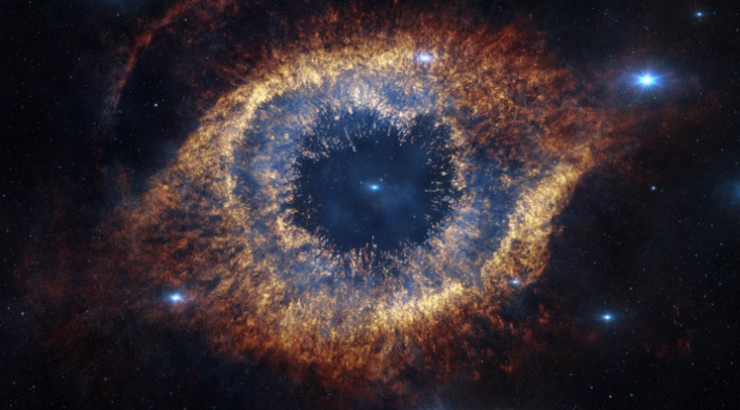Scientists Say Aliens Should Have Already Visited Earth
Authored by Manuel Garcia Aguilar via TheMindUnleashed.com,
The debate about the existence of alien life has been a topic that has interested humans for a long time and the scientific community has had split opinions regarding our solitude in this amazingly big universe.
Now, new research published in the Astronomical Journal provides further information that invites us to rethink our mindset on this topic.
During the summer of 1950, physicist Enrico Fermi posed a question to his colleagues over lunch:
“Don’t you ever wonder where everybody is?”
He was referring to alien life.
The Earth is 4.5 billion years old, and we could say that that was roughly the time it took a “kind of life” to be capable of space travel. Our universe is approximately 13.8 billion years old.
Fermi proposed that during this time, the galaxy should have been overrun with intelligent, technologically-advanced aliens. Yet, we have no evidence of this despite decades of searching. This postulate became known as the Fermi Paradox.
Briefly, some of the main points of this paradox, formalized by Michael H. Hart, are:
-
There are billions of stars in the Milky Way similar to the Sun.
-
With high probability, some of these stars have Earth-like planets, and if the Earth is typical, some may have already developed intelligent life.
-
Some of these civilizations may have developed interstellar travel.
-
Even at the slow pace of currently envisioned interstellar travel, the Milky Way galaxy could be completely traversed in a few million years
-
And since many of the stars similar to the Sun are billions of years older, this would seem to provide plenty of time
Now, you can have a clearer view of why this paradox is so interesting for scientists and further investigation is being done, the odds seem to be really high.
The expectation that the universe should be teeming with intelligent life is linked to models like the Drake equation, which suggests that even if the probability of intelligent life developing at a given site is small, the sheer multitude of possible sites should nonetheless yield a large number of potentially observable civilizations.
This new study offers a different perspective on the question: maybe aliens are just taking their time and being strategic.
“If you don’t account for the motion of stars when you try to solve this problem, you’re basically left with one of two solutions,” Jonathan Carroll-Nellenback the study’s lead author said.
“Either nobody leaves their planet, or we are in fact the only technological civilization in the galaxy.”
Stars orbit the center of the galaxy on different paths at different speeds. They occasionally pass each other, so, aliens could be waiting for their next destination to come closer, Caroll-Nellenback’s study says.
Researchers have formulated different theories trying to answer the Fermi Paradox, including the possibility that all alien life forms in oceans below a planet’s surface and there’s even the “zoo hypothesis” which imagines that societies in our galaxy decided to not contact us to “preserve” us in a way analogical to how we preserve some natural places—or even to prevent them from getting some kind of “disease” from us.
A crucial fact to this new study is the fact that, as previously mentioned, the galaxy moves. So, aliens could be waiting for an optimal travel distance to explore new territories.
“If long enough is a billion years, well then that’s one solution to the Fermi paradox,” Carroll-Nellenback said.
Another important thing to notice is that the research team did not attempt to guess at the alien’s motivations or politics, something that usually delayed the attempts to solve the Fermi Paradox.
We have to consider also that our consciousness and our perception of the “civilization” concept may play a crucial part in this kind of studies. So, our predictions may be based on our own behavior.
“We tried to come up with a model that would involve the fewest assumptions about sociology that we could,” Carroll-Nellenback said.
So far, we’ve detected about 4,000 planets outside of our solar system and none have been shown to host life. But we haven’t looked that hard—there are at least 100 billion stars in the Milky Way and even more planets, so we still have a lot more to explore.
Maybe, merging philosophy and science together for a moment, we could believe that at some point, if there is in fact alien life out there in the universe, we (or our kids, grandkids, or great grandkids) will get to know them and make really close contact, assuming all of this in basis of some of the ideas exposed in Kant’s Critique of Pure Reason, where he says that if something can happen, and there is enough time for that to happen, it will happen.
Tyler Durden
Fri, 12/27/2019 – 21:45
via ZeroHedge News https://ift.tt/2MDevJo Tyler Durden
